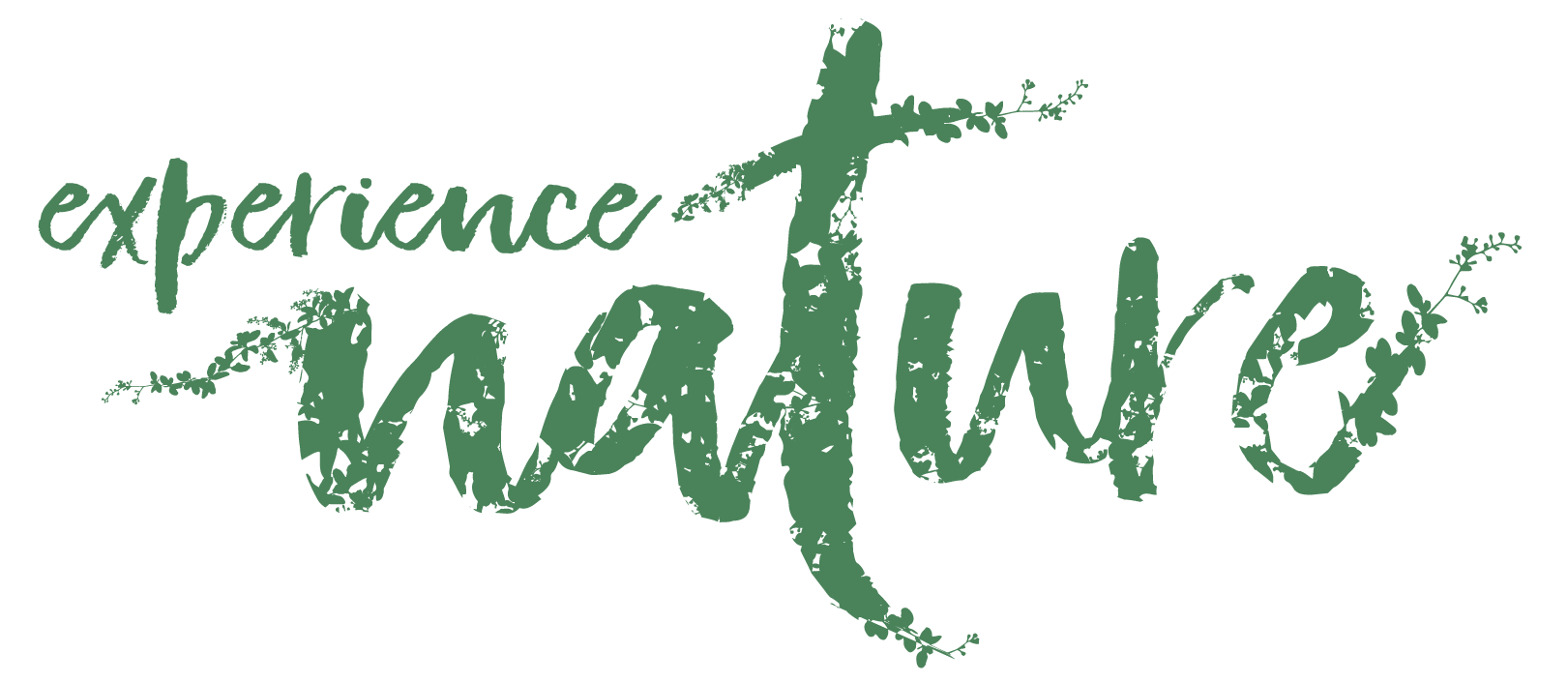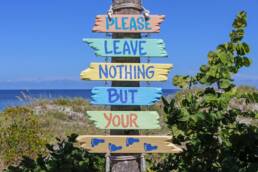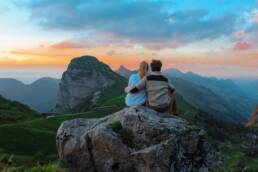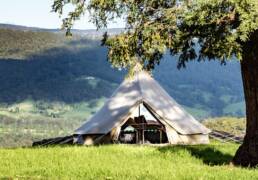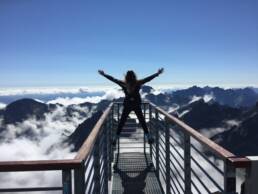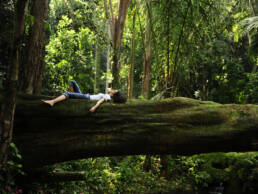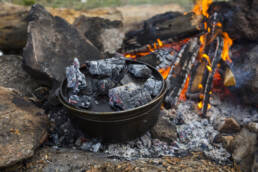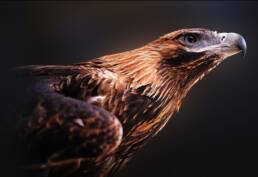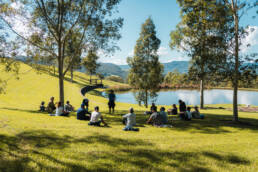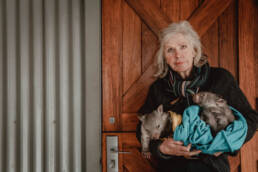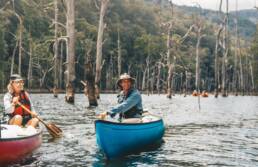Bush Bashing The New Travel Language
Since the COVID-19 Pandemic, TRAVEL, as know it, has changed and so have our priorities in choosing who we travel with, how and where we holiday.
At the heart of our brand has always been that we offer events and experiences that are sustainable, environmentally responsible and ethical. Now is the perfect time to cut through the online noise, shop around, to become more conscious planners and responsible travellers. We also explain some new terms you may not have heard until now. Just like motel came from motor and hotel, we have the next round of ‘must know’ terms ready to take over from glamping, staycations and bleisure.
SANITAGGING
Welcome to the age of sanitised travel – now our bags have to be sanitised and then labelled to confirm the cleaning process.
MOTHBALLING
You know those pictures you see of planes abandoned in the dessert. Well they have been put out to pasture and by leaving them somewhere dry they are less likely to rust.
TRAVEL BUBBLE
Is an agreement with between cooperating countries to allow citizens to travel freely to help stimulate tourism and the visitor economy.
CIRCULAR ECONOMY
A closed loop where operations aren’t wasteful and supply chains are ethical. This involves using traceable suppliers and goods that are reused or repurposed and then put back into the economy, rather than buying goods, using them and then disposing of them.
COMMUNITY TOURISM
Look for holidays that consider the wellbeing of people in a less well-off destination and that prioritise involving locals in decision-making while having direct positive social and economic impact through employment or ownership. The Management of the Rwandan Mountain Gorillas is a great example of how this works for the local villages.
ANIMAL WELFARE
Wildlife should be left to be wild, and operators should not compromise the natural behaviour of any animals. Riding elephants for example is not in their best interests.
BIOPHILIC DESIGN
A love of nature and craving to get closer to it for wellbeing. Look for operators who set the stage, so guests are immersed in nature in a way that also lets them benefit from the healing power of the wilderness.
CARBON EMISSIONS
The measurement of the volume of greenhouse gases (GHGs) being released. Tourism contributes about 10 per cent of the world’s total emissions so look for tour operators that have responded by increased awareness of their activities, ones that are setting new standards in eco travel.
CARBON FOOTPRINT
The total amount of greenhouse gases produced by an individual or business, usually represented in tonnes of carbon dioxide. Flying is the single biggest contributor to our personal carbon footprints.
BIODIVERSITY
In the natural world, every ecosystem is perfectly balanced and works in harmony to contribute to our planet’s overall health. Those working hard to preserve and cultivate biodiversity deserve our support so terms like ‘Rewilding’ are good.
CERTIFICATIONS
Accreditations from third-party assessments signify that an operator has conformed to a standard of practice.
CARBON NEUTRAL
When businesses measure the amount of carbon they’re responsible for releasing and then balance this out with an equivalent amount, usually through the purchase of carbon credits.
CONSERVATION
This movement is about protecting natural resources, safeguarding biodiversity and promoting the benefits of ecosystems. It’s also about teaching responsible management of energy, water and waste, land-planning and carbon-impact reduction.
DISASTER TOURISM
Despite the negative-sounding name, it can be fantastically beneficial for tourists to intentionally book a trip to an area that has been affected by a natural disaster or where a situation has caused people to otherwise stop visiting. Our Bushfire impacted communities fall into this category.
ECO HOTEL
An environmentally friendly property that demonstrates ecological sustainability and whose accommodation makes a valuable contribution to the environment or to a community.
ECO-TOURISM
Giving back to the environment through a holiday is a great way to support conservation - ‘Take only photographs, leave only footprints.’
FOOD PRINT
Diets based on local and seasonal plants have a much lower food print than flying in exotic ingredients or growing goods not meant for that region.
GREENWASHING
Brands are getting smarter at appearing more sustainable than they really are. This term originates in hotels suggesting guests reuse towels as a way of saving the environment, implying that the hosts care about the planet when in fact their motivation is to reduce laundry and housekeeping costs. Do your research!
NONESSENTIAL TRAVEL
To travel by land, sea or plane you must prove that it’s for an essential reason such as being a medical worker.
OFF-GRID
Self-sufficient hosts who harness the power of renewable energy to manage accommodation and travel experiences.
OFFSETTING
Carbon emissions are calculated and then offset through schemes where the carbon output is being countered by paid-for ‘reductions’ made in emissions at another location.
OVERTOURISM
All-too-popular destinations are victims of their own success, as the crowds do more harm than good. It’s smarter and more sustainable to visit these places in low season.
ZERO WASTE
Sending nothing goes to landfill by reducing our reliance on things, reusing, recycling and repurposing all we can, and prioritising a closed loop in terms of supply.
PLASTIC
Millions of tonnes of plastic enter our oceans every year, and 80 per cent of it comes from the land. So single-use plastic is out, bioplastics are offered as substitutes, however disposable packaging made from plants instead of fossil fuels is optimum.
PROVENANCE
This term relates to the origin of goods. The sustainable option is to always choose natural, local or seasonal, make a move away from mass-produced.
RENEWABLE ENERGY
Energy generated from solar, wind, biomass, geothermal, hydropower and ocean resources, directly or indirectly.
VOLUNTOURISM
This is great when it’s done well. Do you research to ensure your noble attempt to eliminate poverty, conserve wildlife or provide aid after a humanitarian disaster is the best way forward? Scrutinise whether a situation is best for all involved as commercial exploitation is sadly present on this type of trips.
PERMACULTURE
Biodynamic farming processes are being more talked about, with producers explaining why they have chosen permaculture over pesticides and why worm farms are a winner at mulching organic waste.
WATER
An important consideration when away from home is whether you’re a burden on local utilities – especially somewhere with water in limited supply. Are you heading to a desert island where seawater needs to be desalinated using diesel generators? There’s much to consider.
CITIZEN SCIENTIST
Data collection can be the most time-consuming part of conservation, and travellers taking part in field research can be a great way to contribute.
UNDERTOURISM
What you do when you head to places that will benefit from your visit. Bhutan’s ‘low-volume, high-value’ policy has helped the country thrive through a less-is-more approach to tourism.
GUERRILLA HUMANITARIANISM
This is hands-on holiday activism, such as beach clean-ups or distributing essentials to those in need.
Take Back Your Time
We were given the gift or time during #Lockdown. Don’t let it evade you again
Follow these 10 steps and own it
Change The Way You Talk About YOUR TIME
Don’t say ‘I don’t have time,’ what they really mean is ‘It’s not a priority’”
Manage your time the way you want and own it
Make Your Downtime A Priority Just Like You Make Your Work A Priority
Put the same emphasis on your time as you do on work assignments
Use Your Calendar To Schedule Your Own Personal Activities
That means making time for you as well as appointments or assignment deadlines
Limit meetings
Choose 5 tasks for the day and just work out how and when you will achieve them
Focus
You don’t have to be a super hero. Just do one task at a time, stay in flow, don’t surf the net and don’t let you inbox rule your day by responding to emails as they arrive. Lets not also forget that putting off tough tasks, just makes thenm harder
Forget Perfectionism
“At its root, perfectionism isn’t really about a deep love of being meticulous. It’s about fear. Fear of making a mistake. Fear of disappointing others. Fear of failure. Fear of success.” Michael Law
Getting it done is good enough.
When It Comes To Taking Time Off, Done Is Better Than Perfect
There will never be the perfect time to go for that hike or take a few days off. So stop looking for the perfect time, and instead just choose a reasonable one.
Become A Morning Person, It Will Change Your Life
Just try it and you will see.
Break Bad Habits in Bed
No screens in bed, avoid sugar hits before sleeping and stop hitting the snooze button
If your work is flexible or freelance, untether yourself
Don’t be afraid to do a little work on your holiday if it means you can take a getaway you otherwise wouldn’t.
Multitasking is a Myth
It seems like a great way to get a lot done at once but research has shown that our brains are not nearly as good at handling multiple tasks as we like to think they are. We get more done by focussing on one thing at a time.
Glamp or Camp
It seems this is a much more controversial topic than I first realised.
On one side we have the hard-core adventurer who sees camping as the only ‘pure form” of ‘real’ outdoor sleeping. And then we have glamping enthusiasts for who love ‘designer’ tents as it satisfies their nature meets modern luxe needs. There is no denying that glamping is introducing a whole lot more people to the beauty of the great outdoors and, as nature tourist operator who provides glamping, that can only be good.
What is it also doing, is showing us that there is a very clear experience economy choice in how you travel. Millennials lead the way telling us that experience trumps things every time and now families have cottoned on to the value of greater contentment found in nature activities.
So here is a quick summary that will help you identify if you are a camper or a glamper?
Location, Location, location More often than not glamping tents are in easily accessible parts of national parks, private properties, vineyards and wedding venues. It’s a drive up and short walk to check in. No exercise needed. Camping on the other hand is usually far away from roads, structures of any kind and more often than not involves hiking. Where you stop is where you pitch your tent and you are all alone in the wilderness.
So what about the tents? Glamping tents are put up for you, have central poles so you can stand up inside them and usually have every mod con imaginable. Real beds, side tables, solar lights, clothes racks, throw pillows, hot water bottles, mirrors…Camping means you carry your home for the night on your back – tent, pegs, poles, hammer etc. So, tents are light weight, simple, just high enough for you to sleep in and furniture is out of the question as is real beds.
How you sleep? For the most part glamping is a luxury bush experience which means someone has carried your real mattress and bed base into your tent for you. No lumps and bumps here!! In rare cases air mattresses are offered but that’s not considered real glamour camping. Add in luxury linens with high thread counts, pillows, throws, doonas, slippers and there is no reason you should not sleep as well as you do at home. Conversely campers might have a blow-up mattress but most likely a swag, sleeping bag and a jumper they have rolled up to act as a pillow. For many that is all they need to sleep like a baby.
Either way your eyes open to the sounds of birds singing, animals stirring and the wind in the trees not the buzz of your alarm clock and breakfast radio.
Showers and Loos Now this is usually a very clear indicator of how committed to the outdoors you really are. Campers dig their own bush toilets and the only water available is a river, lake, steam or the sea. Glampers on the other side of the spectrum have either public amenities or access to mobile luxury bathrooms on trailers to ensure that teeth cleaning, hot water showers and flushing toilets are just steps away from their designer tent.
Do you go off the grid? Wi-Fi or no Wi-Fi? Being really off grid means exactly that, no signal.
With camping Wi-Fi is an absolutely no no and with glamping most locations offer it, but you have a choice as bush luxury is available outside the range of Telstra, IiNet and Optus.
What’s on the Menu? This is very much down to the individual. I know some campers who can make a bush dinner to die for. Remember though you need to collect your own wood, build the fire, carry the pots, pans and food as well as do all the prep and cooking. Glampers can bring in a chef or open the boot and create a 6-course feast without any heavy lifting. And fire wood is usually on hand ready to grab when you need it as part of the set-up service.
Every aspect from where your water comes from, can you make espresso coffee? are my sheets 800 thread count and will I have power for a hair dryer is to be considered…glamping brings modern life to the bush while camping offers great rewards for those seeking personal achievement, improved fitness and survival skills.
Either way there are a lot of reasons why sleeping under the stars is on everyone bucket list from the deep sleep you get waking up in the wild to the feeling of wellbeing breathing in fresh air, the memories you create with families and friends and the joy of remembering the art of doing nothing and just being in the moment.
Get outside I say, you know you want to.
Embrace Change this Earth Day
To celebrate the 50th Anniversary of World Earth Day, we wanted to share our top 10 habits to adopt during and after Covid-19 lockdown.
Feel inspired to adopt these positive new lifestyle changes from here on.
1. Appreciate Our Lucky Country
Australia is truly a unique place, and what better way to appreciate it then explore it.
With more than 8 million tourists flocking to our country each year, we can embrace the fact that our special places will be less crowded from overseas visitors this year and open for local business #holidayathome.
2. Continue Your Micro Adventures
It’s important to notice the small things and with a micro adventure you take in the world around you from a new perspective.
Some of our ideas include: Taking a full moon hike; backyard camping; meteor shower watching and star gazing. Follow our Facebook Page for weekly adventures.
3. Grow Your Own Food
You don’t need to be a Quarter Acre Farm right away you can start by growing your own herbs and vegetables in pots. Herbs such as mint, rosemary, thyme and parsley all grow well in the Southern Highlands.
Check out how to create a Kitchen Garden from The Fold Southern Highlands and follow Humans Who Grow Food for some inspiration.
4. Travel From Your Living Room
We all know taking a trip to tick an item off your bucket list will be a priority for you after this lock down, however to preserve the Earth, try and appreciate the world from afar through virtual tours such as seeing the 12 Apostles in Australia, experiencing the Northern Lights, or exploring America’s National Parks.
5. Embrace the Pause
When we pause and reflect, we learn. Although we’ve been forced into a pause at the moment, it’s a good opportunity to continue these habits and focus on what is really important in life and maintain a positive mental health. This key aspect of life is a way to nourish the mind and soul.
6. Support Local
We have seen a rise in communities coming together to shop local to keep their favourite businesses alive. It’s essential we maintain this across Australia to keep local jobs and skills.
There has never been a better time to buy and use Australian.
7. Stay in Touch
At this time we are using technology to stay in contact loved ones and friends. Some of these people we might not have usually have talked to each week so why not continue to use technologies to keep in contact with loved ones more often.
8. Challenge Yourself
Many things have come to light during this lockdown, including your own personal abilities. Rather than taking the bus to work, walk if you can. Ride your bike to the shops, or park further away. Not everyone can run a marathon first go, but its important to start somewhere and achieve your goals. For those adrenaline junkies out there, check out some activities to feed this urge during lockdown, such as The Floor is Lava!
9. Focus on Food
We have been practising our cooking skills and now we challenge you focus even more on reducing your food waste. In Australia alone, more than 5 million tonnes of food ends up as landfill, enough to fill 9,000 Olympic sized swimming pools. Launched in 2018 (in the Southern Highlands), the The Love Food Hate Waste program has challenged business in the area to reduce waste, and now you can learn how to focus on your food at home.
10. Be Part of Our Global Clean Up
As you'v been decluttering your house (because you've got nothing else to do), why not take this energy a step further by participating in the Great Global Clean Up - when out walking the streets, pick up that rubbish on the side of the road or on your favourite bush track. Be proud of your country and your community and keep it as beautiful as it can be.
The Art of Being Idle
The Art of Being Idle doesn't come naturally to most.
It's rare that in our busy lives we have a spare weekend, let alone a spare minute to just take life in. In the digital age we are always connected and always looking for something to occupy us. Now the world is changing, real time at home just became the new SLOW. Maintaining physical distance but keeping and craving social connection is the new daily grind. To distract you from what is going on around you, we wanted to share some amazing animals, incredible people and some micro adventures you can embark during this time.
Micro Adventure | Full Moon Hike
Use this time to take an adventure of a different kind.
Take a Full Moon Hike on Wednesday, 8 April and experience nature from a different perspective. You may even see some nocturnal animals out and about.
Eco-Warriors | James Grugeon
All over the planet people are focusing on the safe keeping of our natural environment. We share their mission and want to highlight their efforts in making a difference in the world. James Grugeon started The Good Beer Co a social enterprise that exists to create good beers to fund and raise profile for good causes. Let’s get behind this eco-warrior!
Wild Animals | Golden Australian Possum
Our native animals have had an incredibly difficult bushfire season and for them its not over yet. SO now is the time to remember there are so many creatures great and small that call our blue planet home. Introducing the Golden Australian Possum who is brightening our day. Born with a "genetic mutation - resulting in low levels of melanin, meaning that instead of her fur being brown, it's instead turned out gold. Her bright colour scheme has earned a very fitting name: Pikachu.
Looking for an Outdoor Adventure in Spring?
A Wild Night Out at Tidbinbilla Nature Reserve invites families to experience nature with ranger activities, family glamping and stories around the campfire.
We are now taking bookings for September/October 2020.
Life before SMEG
Higher Ground Raptors
https://www.facebook.com/HigherGroundRaptors
Peggy takes these birds of prey into her care, ensures they get the medical care they need and offers them safe refuge in readiness for their re release into the wild. And running the largest facility of its kind on the Southern Hemisphere also means she is making sure that valuable knowledge and research is carried out to help ensure their future survival.
Like so many dedicated Australians caring for our wildlife Peggy does all this through donations and its only the generosity of the local community that keeps facilities like ARCC Inc functioning. Fortunately about 18 months ago Wildlife Link got involved and now sponsor the food cost and medicines for her work but there is always more that is needed. At WILDfest™ we share Peggy’s love of all things wild and wildlife so have chosen to offer our support through the festival and an annual fundraiser each year to make a difference.
Get involved and help our wild birds – donations greatly accepted through ARCC Inc’s website http://www.australianraptorcareandconservation.com/
Please specify what the donations are for e.g. for HigherGround Raptor care so the funds get to the right place. At the moment Peggy is fundraising for a Wedge-tail Eagle Intensive Care Unit as well as building some new feeder aviaries that will lead into the already established Peter Spitzer free flight aviary.
And for more information on Peggy and her work read this incredible story in Australian Geographic written by Peter Meredith. Our Birds of Prey are too precious not to fight for their ongoing place in our wilderness.
Let Nature, Nurture You
Forest Bathing. What a great term for swimming naked in the woods.
Reasonable enough assumption given the new wave of outdoor activity trends such as ‘wild swimming’ which became a thing despite the fact that humans throughout our existence have been finding waterfalls, rivers and billabongs and taking a dip.
Nothing could be further from the truth, Forest Bathing is not a fleeting cultural phrase but a learned technique to let nature, nurture you.
Its not a walk, a hike or even technically exercise but rather a sensory journey invigorating your sight, hearing, taste, smell and touch to bring you closer to the natural world. In Germany, where it originated, it is known as “Waldtherapie”, in Korea it is referred to as “Sanlimyok (산림욕)”, in China and Taiwan people call it “Sēnlín liáofǎ (森林療法)” and in Japan where it has gained international media it is called “Shinrin-yoku” (森林浴) or “Shinrin-ryōhō (森林療法)”, Shinrin in Japanese means “forest,” and yoku meaning “bath.” So shinrin-yoku means bathing in the forest atmosphere, or taking in the forest through our senses.
The trend is growing with accredited professionals now mastering the art of this mindful and wellbeing practise so much so that in a few years experts predict its popularity will equal time-tested yoga and meditation as primary relaxation options. In Australia we have only a handful of accredited professionals who practise this wellbeing technique and I am delighted that we have been able to include Forest Bathing into Wildfest this year thanks to Christie Little at Frontier Wellbeing. Studies are showing it has real health benefits.
So what is it all about? This is about listening to nature, taking in the sounds of the forest, feeling the clean fresh air on your skin and in your lungs, taking in the scent of the trees, feeling soil and water underfoot and the texture of bark. A guide helps you block out all other thoughts, leave work behind, push stress aside and slow down enough to let your senses start to work so you can focus on where you are. Some cleaver techniques and targeted activities to kick off your Forest Bathing adventure and you finish with a tea ceremony.
And where is it all going? You relax, you inhale phytoncides, the fresh air lowers your blood pressure, you create endorphins and it all leads us to a sense of wellbeing as you let nature in and start on your path to happiness. Seems pretty simple really and as you get better and better at it, you benefit more and more.
Time to activate your sixth sense and let nature change your state of mind.
For the first time in the Southern Highlands you can try Forest Bathing with a qualified instructor at our annual festival.
Go to Wildfest Experiences for more information
Wildlife Rescue South Coast
Woody and Kerstin are two of the dedicated members ensuring that animals such as wombats, kangaroos, possums, koalas, echidnas, reptiles, bats and birds all find their way into experienced care until they can be safely returned to the wild. An ordinary day for them consists of safeguarding the many creatures in their care which often involves four to six hours of individual animal feedings.
It takes great commitment to be a long term wildlife carer.
Additionally they educate the public on the issues facing our native wildlife and offer advice on what you can do to maintain an environment that helps our unique fauna survive.
We salute the work they do and not only is festival supporting them with much needed brand awareness and donations but we are also committed to an annual fundraiser to help with their ongoing vital work.
Every dollar helps from providing essential formulae for young mammals or medicine and necessary vet care. They receive no government funding so rely solely on public support and the personal investment of their many carers. Please help them continue their volunteer service by offering a donation – no amount is too great or small when it comes to the protection of our Australian wildlife.
For more information please go to http://www.wildlife-rescue.org.au/
Our Highland Guide
You can tell a lot about a man by his dog.
Hartley is part dingo, part cattle dog and completely enamoured by his owner Travis, so it’s no wonder that he is about as true blue as they come these days. Don’t let the north American accent fool you – he knows more about the parks and waterways in the Highlands than many people who have lived here all their life. And just like Russell Crowe, Peach Melba and the Beef Pie – we made the smart choice and have adopted him as one of our own!
Sometimes it takes fresh eyes to see what is right in front of you and that is what happened when Travis Frenay was coaxed to Australia in 2003. He came from a culture of outdoor adventures where hiking and canoeing are normal weekend activities to find a region so untouched, undiscovered and unknown to most Sydneysiders that he knew he wanted to explore it. Life here started in Robertson where he had easy access to all the National Parks and wilderness areas.
“the Highlands and bushland surrounding it, are amongst the most diverse and amazing places on the planet….it has everything that interests me from bushwalking to paddling, canyons, waterfalls, rainforest, sandstone escarpments, caves, climbing, mountain biking and even proximity to the coast and the beach when you want a change of scene. I was hooked first visit and knew this was my new home.”
His business started out of the need to really educate the local market. Working in the Outdoor Education industry for the Outdoor Education Group and now for TAFENSW he was pretty stunned by the poor quality of canoes and kayaks available so he started importing a better product, Wenonah Canoes. And that was when Paddle & Portage began and it has since evolved into a guiding business also with no signs of slowing down anytime soon.
Now for those of us not in the know, canoes and kayaks are different not due to the boat shape but in fact it’s all about the paddle. In a kayak you use a double blade paddle and sit lower in the bottom of the boat than you do when canoeing, which uses a single blade paddle usually while you are kneeling or sitting higher in the boat. So, when we reached out to Travis and asked him to be interviewed for The Fold its seemed appropriate that we chat in a boat on the water so he could show us some of his favourite local places and there are a lot. And that is exactly how he started to explore the area. He made friends and asked them to show him a few cool spots and it just grew from there.
“Visitors here don’t realise the extent of the wilderness and nature based activity options. Its endless and the animals in this country are incredible – everyone knows about wombats, koalas, kangaroos etc , but there are so many other creatures… water dragons, goannas’, azure kingfishers…Seeing my first quoll was mind blowing. “
Back then Travis had a huge education if front of him from learning where to go caving, paddling or hiking to studying local flora. “The only trees or plants I recognised were either weeds or introduced plants so most of the knowledge I learned from the Australian bush came from the National Parks Aboriginal discovery rangers and other guides. I had to start from scratch in terms of learning about the bush but the culture felt very familiar so that was really easy to assimilate into. Once I meet and married Sarah the process was complete and of course my kids Samson and Estelle were born here”
Life now is a juggle between running a business, teaching at TAFE, managing the kids and working with local companies like Wildfest running our programs. And both Travis and Sarah have found a way to make it all work. Quite often the whole family, Hartley included, are off together exploring some waterway on the weekend and just spending quality time together doing what they love best. So where are Travis’ favourite spots? we had to ask and whilst the list is very long a few stand out for him: Kangaroo River Gorge below Carrington Falls, Gerringong Falls and Bridal Falls in Robertson were top of mind. And exploring cool spots in the region is the future Travis hopes for his kids.
“We need to adopt the US mentality here for our National Parks. Given the size of the land and resources we need better access and infrastructure in place to allow more people to visit spots like Belmore Falls safely and to do that the NSW Parks need revenue. The money pit from government is not endless and this is a vast continent so something has to give. So if we want a well maintained track to the base of Belmore Falls, Carrington Falls and Fitzroy Falls then park fees are the way forward which can be topped up with sustainable tourism visitors. Not huge fees but something to help invest in the preservation and protection of these areas. Its workable if we get the right systems in place.”
In a recent article Travis wrote for Wild Australia he describes an incredible family canoeing trip into Tallowa Dam and up into Bundanoon Creek and we feel that his words best finish our insight into our adopted Highlander far better than we could. What he may not realise is that when he takes out guests to explore the area, his likeable nature, guiding style, respect for the outdoors and great tales of adventure make him the seasoned paddler they just want to hang out with.
“Canoeing and paddle sports have become the way in which I make a living, but I ‘ve been careful not to force this onto my children. Rather, they have been able to sample smaller and more enjoyable, experiences in the outdoors from a young age and they have come to the conclusion that it’s a wonderful thing to do……..I occasionally meet an old paddler who tells captivating tales of the Kangaroo River and the Shoalhaven before Tallowa Dam existed and I think how magical it would have been. 40 years later because of the dam, we have the unique privilege of paddling among the standing ghosts of the former trees which, in and of itself, is an incredibly magical experience. It’s fascinating to think that, in another 40 years, those trees will no longer be standing, but my son or daughter might be the older paddler telling stories of what is it was like to canoe through them as a child”
